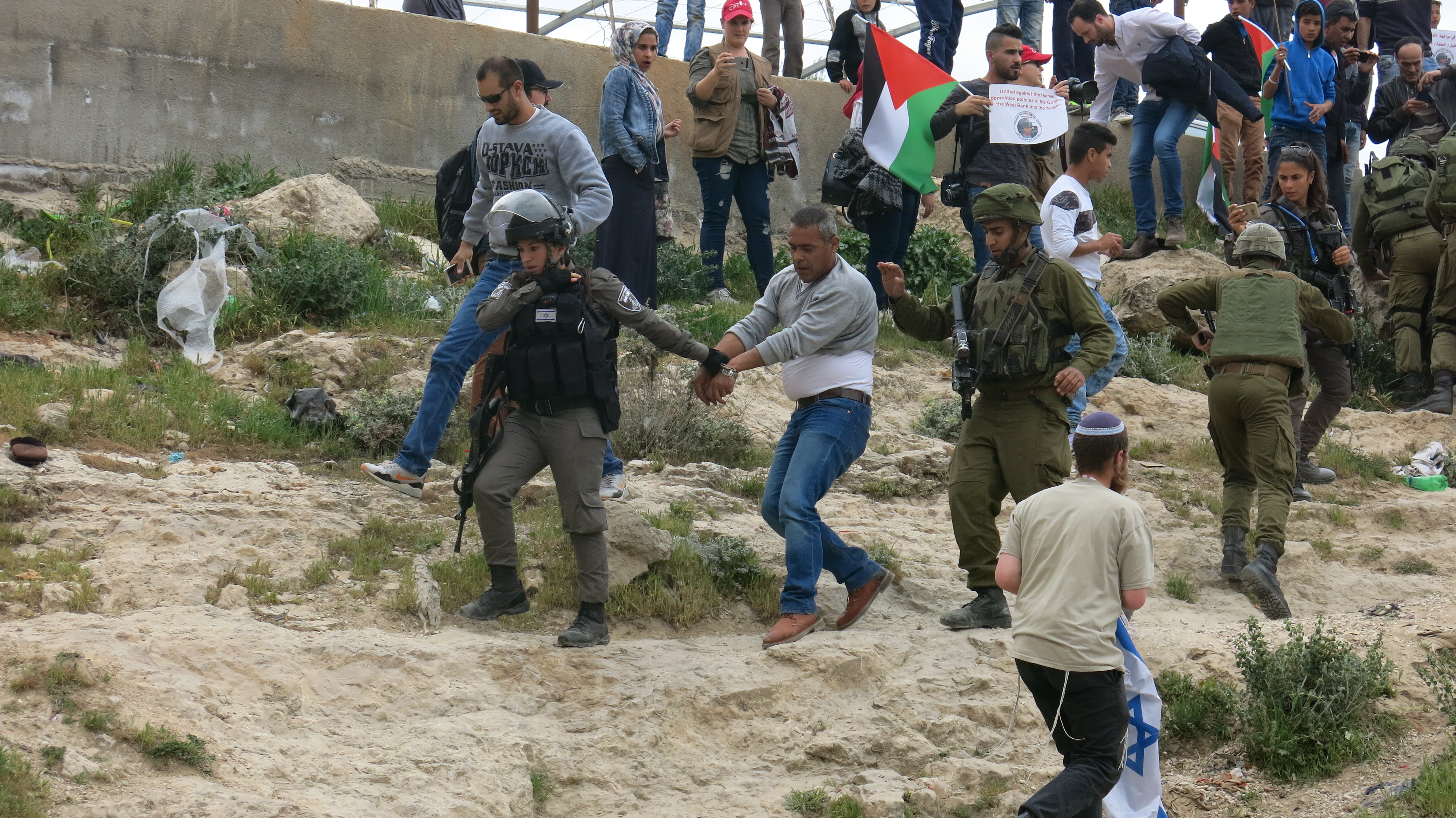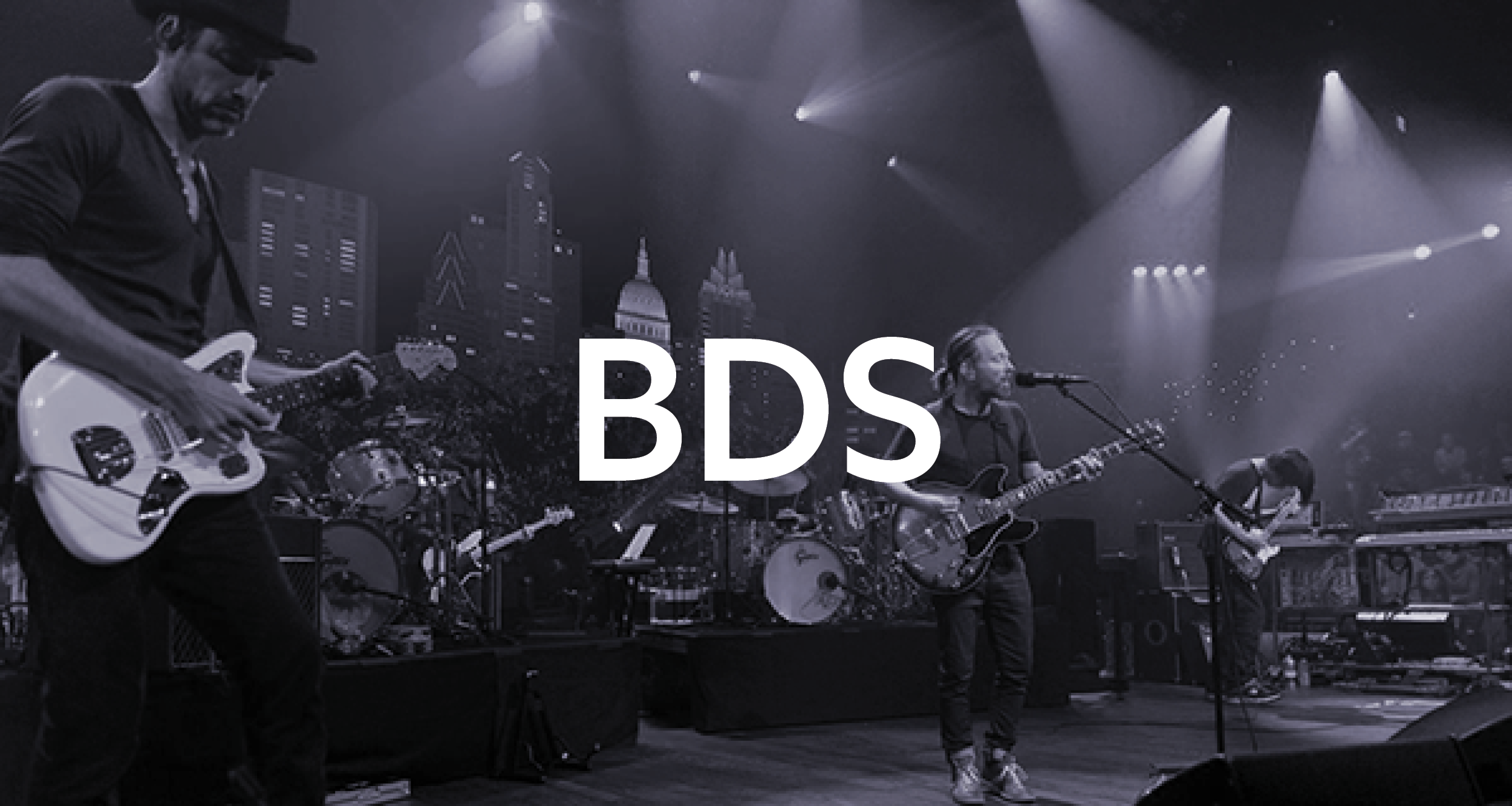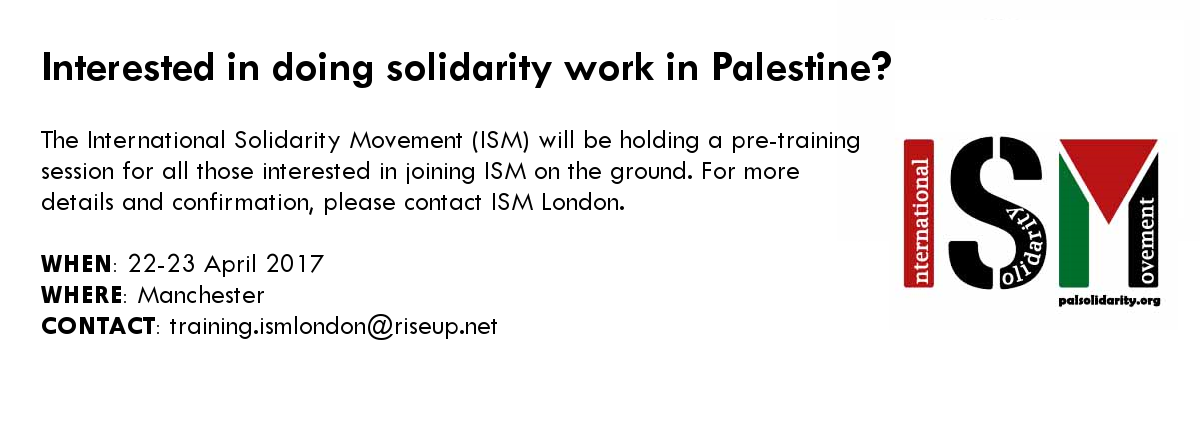Tag: Action Alert
-
URGENT ACTION: Four Palestinian Human Rights Defenders arrested facing military trial
1st April 2017 | International Solidarity Movement, al-Khalil team | Hebron, occupied Palestine The four human rights activists arrested three days ago on Thursday 30th March on a peaceful Land Day protest action now face the Israeli military court at Ofer tomorrow, 2nd April. They are charged with participating in an illegal demonstration and being…
-
ISM Statement on Israel’s attempt at silencing Omar Barghouti
On March 19th Israeli authorities barged into the house of Omar Barghouti, co-founder of the Boycott, Divestment and Sanctions (BDS) movement; in an attempt to tarnish his image and reputation by claiming an alleged income outside of Israel. Omar and his wife Safa endured a first round of interrogation lasting 16 hours, Omar was subsequently…
-
ISM training: Manchester, April 2017
20th March 2017 | International Solidarity Movement, England support group | England An ISM training session will be held in Manchester on 22nd and 23rd of April 2017. For any questions and signing-up please contact ISM London at training.ismlondon[@]riseup.net, but avoid using email accounts or names that could pose a problem at the border. All…



